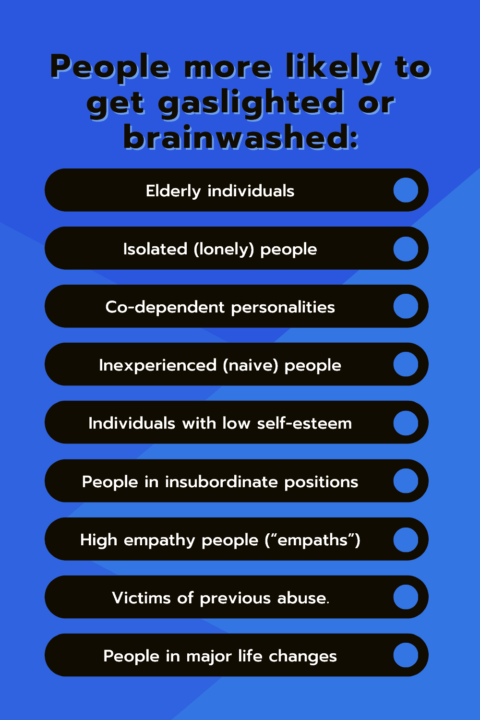Today's Tuesday • 8 mins read
— Researched and written by Dr. Sandip Roy.
Ever had a friend who always seems to “win” every argument?
They always leave you feeling confused but strangely indebted. You wonder what makes them so persuasive and yet consistently have the upper hand.
It might be their Machiavellian tendencies. And the true cost of being related to a Machiavellian is immense.
This personality type has long been known for its manipulative nature, preference for emotionally detached relationships, willingness to exploit others, and cynicism (Christie & Geis, 1970).
Machiavellianism in Personal Relationships

A Machiavellian is hard to identify in close relationships that require trust, commitment, and cooperation.
They might have charmed you into the relationship with their wit and confidence. But you never realize that they were always playing from a point of distrust, detachment, and self-interest.
- They won’t trust you, but they can fake empathy to make you trust them.
- You will often see them coldly manipulate their close friends for personal benefit.
- They are skilled and successful in deceiving others in everyday interpersonal situations.
1. They Have Low Relationship Satisfaction
Machiavellians are distrustful of their partners.
They are also unconnected to their own emotions (alexithymia). This makes it hard for them to connect emotionally with others. So, they treat other people as objects to be controlled to meet their selfish goals (Wastell & Booth, 2003).
Together, distrust of others and emotional distance make their relationships unhappy.
Machiavellians also feel a lot of uncertainty and distrust towards their partner and the relationship, which can lead to low expectations of being warm-hearted, trustworthy, and intimate in romantic relationships.
Despite knowing that they cannot have satisfying relationships, they have marriages and partnerships.
And the reason they enter long-term relationships is either to adhere to social norms or to manipulate their partners.
“Machiavellian individuals not only have a negative representation of significant others, but they also tend to seek symbiotic closeness in order to exploit their partners.”
— Ináncsi, Láng, & Bereczkei, 2015
Austin & Farrelly link Machiavellianism to low agreeableness (niceness) and low conscientiousness (integrity). In contrast, people in satisfied relationships have high levels of agreeableness and conscientiousness.
So, it’s little surprise that Machiavellians bond better with other Machiavellians. Researchers found that women with high Machiavellian traits preferred men who had even higher Machiavellian scores (Novgorodoff, 1974).
2. They Do Not Trust Or Show Commitment
Machiavellians, by nature, have a broadly negative view of others and see them with suspicion and distrust.
Trust, the expectation of positive exchanges and responsiveness, is a foreign concept for Machiavellian individuals.
These individuals are unable to empathize with or provide social support to others. A study by Austin and colleagues found that Machiavellians show a low level of emotional intelligence.
Research links Machiavellianism to low levels of relationship commitment (Ali & Chamorro-Premuzic, 2010).
The paper “A Darker Shade of Love: Machiavellianism and Positive Assortative Mating Based on Romantic Ideals” aptly put it:
“Machiavellian individuals not only have a negative representation of significant others, but they also tend to seek symbiotic closeness in order to exploit their partners.”
— Ináncsi, Láng, & Bereczkei (2015)
Their low trust and loyalty keep them ready to hurt as soon as they find evidence for their suspicions. You may think of them like a predator watching its prey carefully, always ready to strike.

3. They Use Control and Emotional Abuse
Recent research unveils a disturbing truth:
- Machiavellianism and emotional abuse are often close cousins (Carton & Egan, 2017).
- Paulhus & Williams (2002) found that Machiavellians have an inborn desire to maintain power.
- Hodson, Hogg, & MacInnis (2009) found that Machiavellianism is associated with social dominance.
So, taking all those together, you can’t separate a Machiavellian from their tendency to control and emotionally manipulate their partners.
Imagine subtle insults disguised as playful banter, calculated guilt trips, or even threats – all to keep their partner emotionally dependent and off-balance.
Research shows men and women with high Machiavellianism prefer emotionally detached relationships and are often reluctant to commit (Ali & Chamorro-Premuzic, 2010).
While high levels of agreeableness and conscientiousness predict greater relationship satisfaction, experts found Machiavellianism is linked with lower levels of agreeableness and conscientiousness (Austin, Farrelly, Black, & Moore, 2007).
Moreover, highly Machiavellian people engage in relationships to adhere to social norms or to manipulate relationship partners (Ináncsi, Láng, & Bereczkei, 2015).
“For Machiavellians, love is a dramatized performance.”
Deviations In A Machiavellian Relationship
Machiavellian love is a paradox. It can be alluring, with glimpses of charm and success.
But beneath the mask lies a chilling web of manipulation, a lack of genuine connection, and a constant urge for control.
This study revealed some intriguing findings:
1. Machiavellianism can be surprisingly beneficial in the short term. The study found that people high in Machiavellianism were more likely to be perceived as leaders and achieve higher social status. They were also better at negotiation and resource acquisition.
2. Machiavellianism is not all about manipulation. The researchers found that Machiavellianism also includes a component of emotional detachment, which can help people cope with stress and make difficult decisions without getting bogged down by emotions.
3. Their relationships suffer in the long run. Despite the initial success, people high in Machiavellianism were more likely to have unstable and conflictual relationships. They struggled with empathy, intimacy, and maintaining long-term commitments.
4. Machiavellianism is a spectrum, not a binary. The study emphasizes that Machiavellianism is not an all-or-nothing trait. People can exhibit varying degrees of the characteristics, and the expression can differ depending on the context and individual.
Machiavellian Tactics in Relationships
One aspect of Machiavellianism is being outgoing and socially dominant. They are quite sociable and rarely shy (Gurtman, 1992). High-scoring Machiavellians tend to be more convincing and more likable.
However, beneath that charming facade of wit and confidence, they are a tangled web of manipulation and hidden agendas.
Their struggle with genuine connection creates a cycle of shallow relationships, leaving partners feeling used, betrayed, and emotionally drained.
Their Words Don’t Match Their Actions
Imagine a partner feigning deep interest in your hobbies or friends, their eyes glinting with something other than genuine curiosity.
That is the hallmark of Machiavellian behavior – a stark inconsistency between words and actions. They are constantly looking for ways to lie and deceive.
They might shower you with affection when it suits them, only to withdraw when your usefulness wanes.
This push-and-pull dynamic leaves you questioning their sincerity, eroding your trust, and creating emotional upset.
Friendship For Machiavellians Is A Calculated Game
In friendships, expect flattery and deceit to be their weapons of choice.
They might charm you with exaggerated compliments, subtly painting themselves as the hero in every situation. But trust these words with caution, for they are merely tools to manipulate and exploit.
Once your guard is down, they might reveal their true colors, using your vulnerabilities for their gain.
They Can Emotionally Drain You Numb
The emotional toll of a Machiavellian relationship is perhaps the most damaging aspect.
Their lack of emotional depth leaves you feeling hollow and confused.
You might crave genuine intimacy, but they offer only a carefully crafted performance, leaving you longing for something real that never comes.
This constant emotional draining can lead to trust issues, even emotional trauma, long after the relationship ends.
Never forget that Machiavellian tactics are often subtle, disguised in everyday interactions, making them even more insidious.
How To Handle A Machiavellian Relationship
Dealing with a Machiavellian requires setting clear boundaries, keeping emotional distance, and being vigilant of their manipulation.
The key is to stay careful and recognize the inconsistencies, the shallow connections, and the empty promises.
Don’t be afraid to walk away from the relationship before it suffocates your emotional well-being. It won’t affect them, since they live in an emotionally vacant world with no connection to their own emotions.
Final Words
Machiavellianism partly comes from childhood experiences with caregivers who were hard to talk to, less understanding, highly disciplinary, or strict.
As a result, the love that they learn to show isn’t love; it’s a calculated game played at the expense of trust, intimacy, and true happiness.
Overall, Machiavellians experience low levels of relationship satisfaction, don’t much depend on their partners, have low faith in their partners, and are less willing to stay in the relationship.
√ Please share it with someone if you found this helpful.
√ Also Read: How To Recognize A Machiavellian Personality In A Room?
• Our Story!
